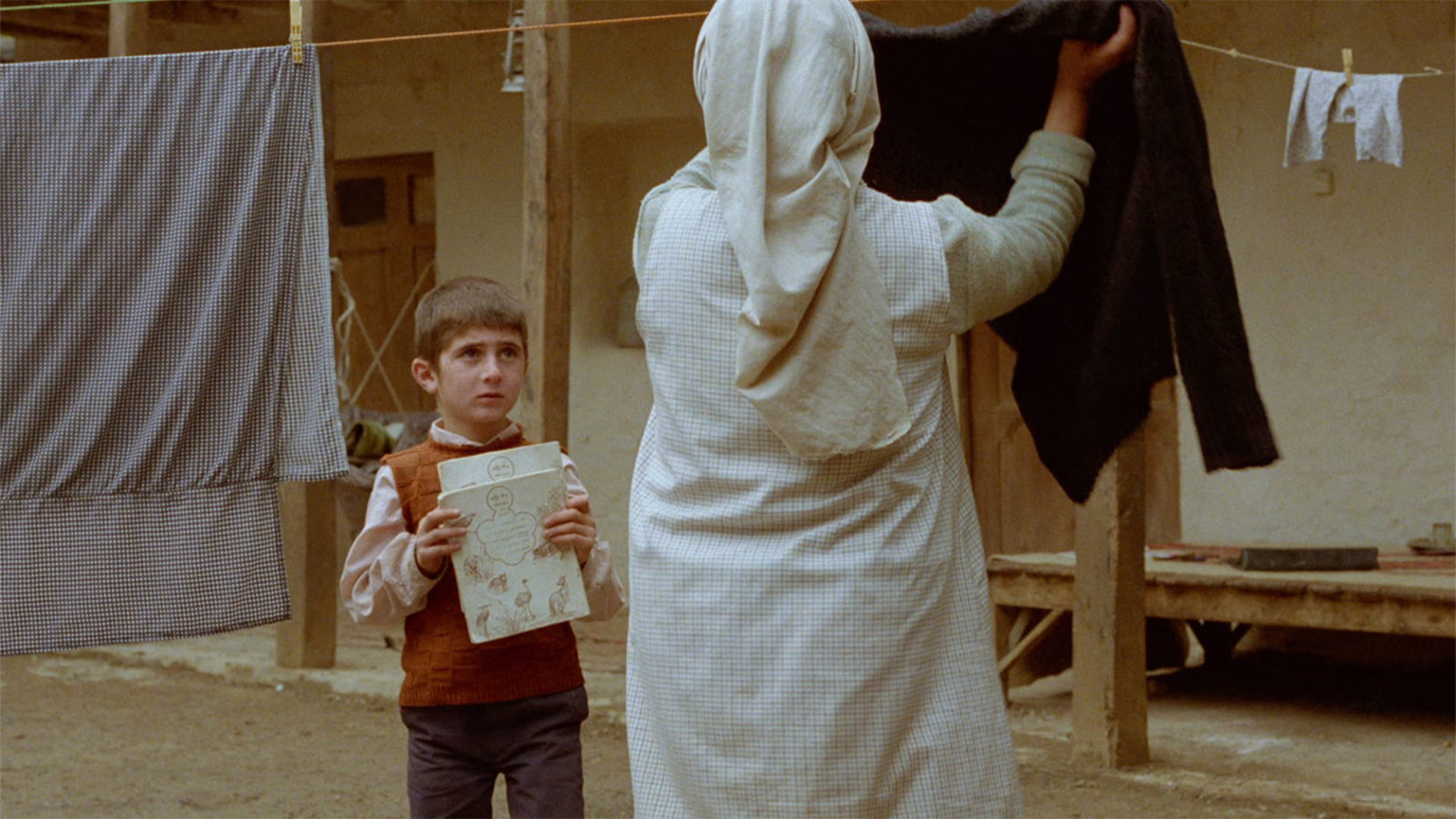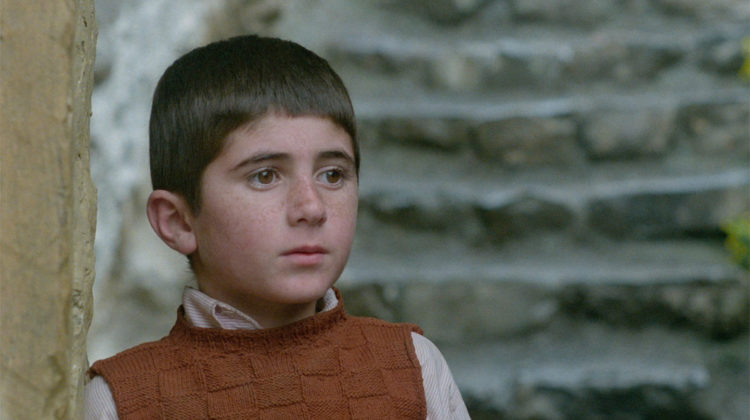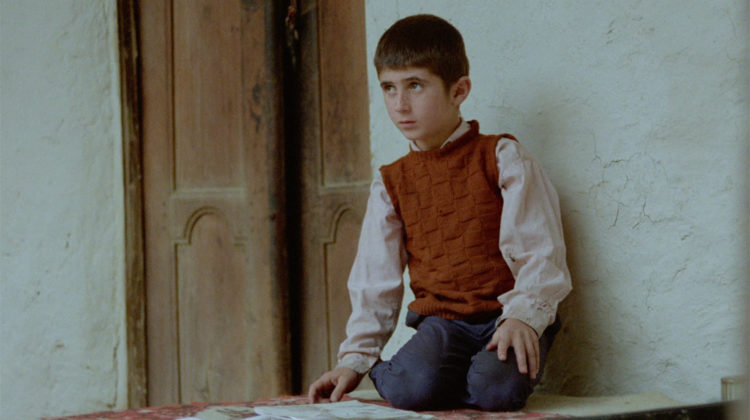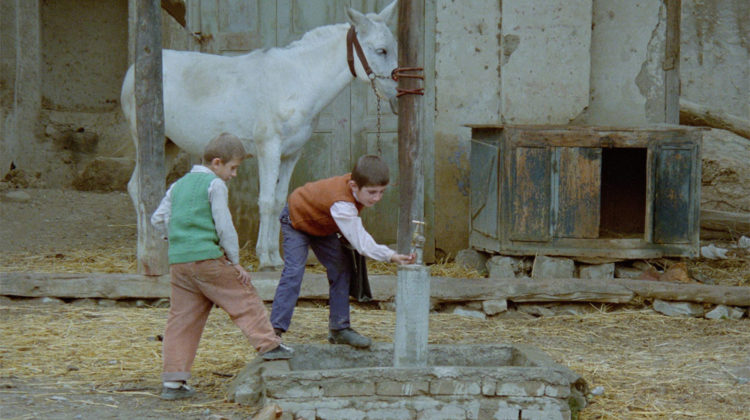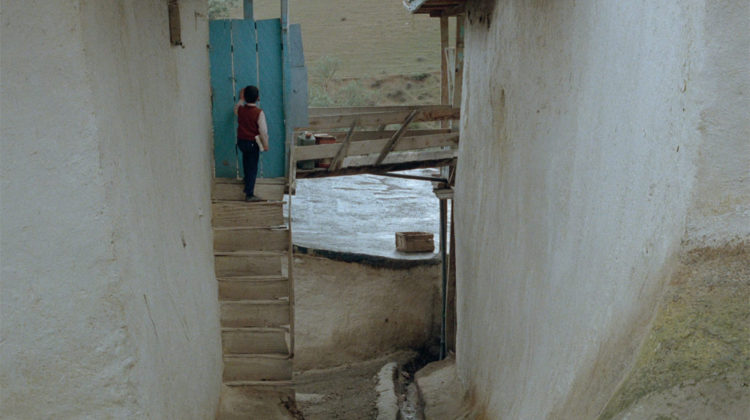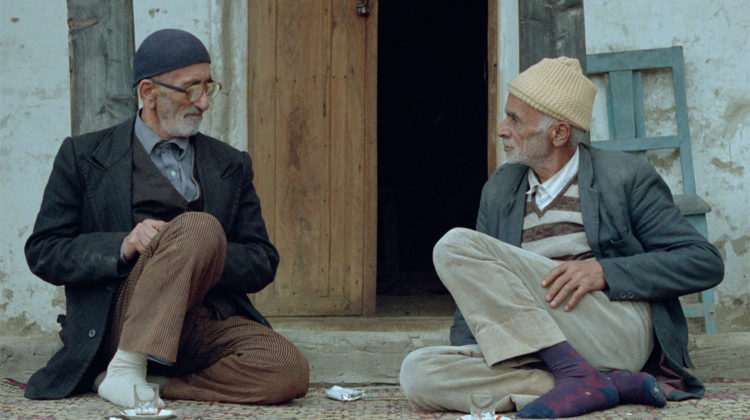And Life Goes On: The Films of Abbas Kiarostami
- Where is the Friend’s House?
- Khaneh-ye doust kojast?
- Iran1987
- Abbas Kiarostami
- 84 DCP
- NR
Screening Dates
- October 18, 2019 6:30
- October 20, 2019 4:30
- October 21, 2019 6:30
Abbas Kiarostami had been making films, principally about children, since 1970. This sublime 1987 feature brought him to international attention. Inspired by a Sohrab Sepehri poem, and set in the northern village of Koker, the film has an eight-year-old named Ahmad discovering, to his dismay, that he has accidently taken home a school chum’s notebook. The pal faces expulsion for not doing his homework; Ahmad sets off to a nearby village in search of his friend’s house, only to encounter a labyrinthine maze of narrow alleys, winding streets, and identical-looking dwellings — and unhelpful adults who obstruct his progress at every turn. Ahmad’s odyssey, both comic mini-epic and parable of personal responsibility, achieves near-mythic proportions; the lyrical, neorealist style, convincing performances from non-professional actors, and sensitive portrayal of children’s lives showcase Kiarostami’s gifts at their finest.
Media
Note
The Koker Trilogy
It was the three wonderfully lyrical, warmly humanistic films that make up the so-called “Koker Trilogy” — Where is the Friend’s House?, And Life Goes On, and Through the Olive Trees — that brought Abbas Kiarostami to international attention. These three sublime features, dubbed a trilogy by critics but not by Kiarostami himself, are set in or around Koker, an earthquake-prone community in northern Iran, and are subtly interlaced: each successive film references, in playful, self-reflexive fashion, the film before it. But each is also a standalone work, intended to be appreciated entirely on its own. The self‑reflexivity found in the trilogy (and in Kiarostami’s Close-Up, made in the midst of it), the interplay between reality and artifice, documentary and drama, the exploration of cinematic “truth,” are hallmarks of the director’s mature and most lauded work.
